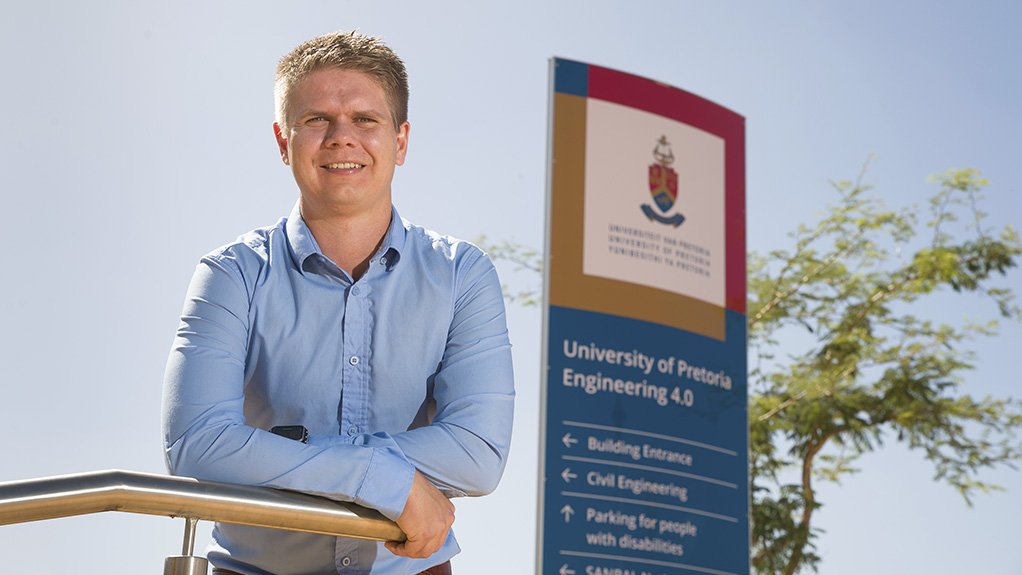As the construction industry is moving towards modular construction, University of Pretoria (UP) Graduate School of Technology Management senior lecturer Schalk Grobbelaar says mass timber is one of the few building materials that ticks the boxes in terms of being cost effective, reliable, sustainable and quick construction.
“Wood properties have recently been rediscovered in the form of mass timber, which includes glue laminated timber, cross laminated timber, laminated veneer lumber and cross laminated veneer lumber.
“Some of these materials’ specific strengths – the strength-to-density ratio – far exceed that of low carbon steel. Mass timber has also become a lucrative building material for manufacturers and construction companies.”
However, Grobbelaar mentions that South Africa is lagging in the current race for mass timber because on average, South Africans use only 0.0319 m3/y of wood a person. People in North America and Europe, meanwhile, use between ten and twenty times as much.
“Nevertheless, there are a couple of trailblazers that realise the importance of collaboration and open innovation. The recent partnership established between UP and York Timbers is one such example. The partnership entails the establishment of a transdisciplinary chair in data-driven wood structural engineering for a sustainable built environment and African bioeconomy.”
Grobbelaar explains that the chairperson will facilitate interdepartmental research from various schools and institutes, including the Forestry and Agricultural Biotechnology Institute; the Department of Biochemistry, Genetics and Microbiology; the School of Engineering; the School for the Built Environment; the School for Information Technology; and the Graduate School of Technology Management.
The chair and research laboratory are hosted in the newly constructed Engineering 4.0 building at UP’s Hillcrest campus. The research group also takes part in the Department of Trade, Industry and Competition’s Promotion of Timber Construction Steering Committee, which aims to address the promotion of the forest sector’s role in the green economy.
The steering committee deals with wood products, wood energy and forest management forestry policy and the administrative framework – including the sustainable building, production, consumption and valuation of forest ecosystem services.
Further, Grobbelaar warns that in the modern era, categorised as Society 5.0 – a highly interconnected society – it is no longer good enough to be first or the fastest.
“Sustainability from an environmental and societal perspective is imperative. This creates unique project, engineering and technology innovation management, as well as energy systems challenges. Engineers need to have transdisciplinary skills to provide innovative solutions for engineering and societal challenges to be successful in this environment.”
Therefore, mass timber is a “good example” of a product that can be developed through this approach and the UP Graduate School of Technology Management is uniquely positioned to prepare engineers for this challenge, Grobbelaar concludes.
Edited by: Zandile Mavuso
Creamer Media Senior Deputy Editor: Features
EMAIL THIS ARTICLE SAVE THIS ARTICLE
ARTICLE ENQUIRY
To subscribe email subscriptions@creamermedia.co.za or click here
To advertise email advertising@creamermedia.co.za or click here













